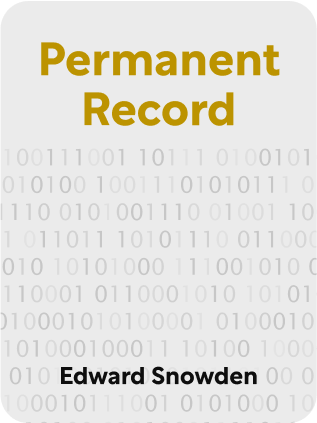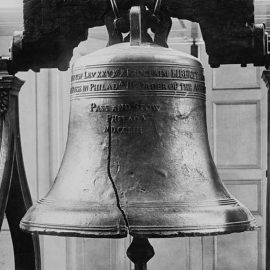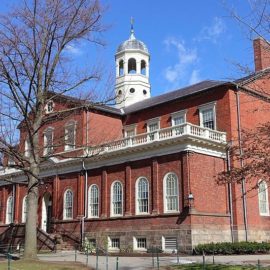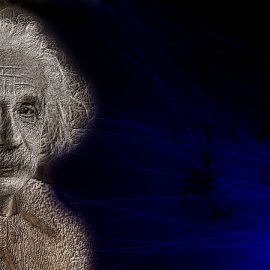

This article is an excerpt from the Shortform summary of "Permanent Record" by Edward Snowden. Shortform has the world's best summaries of books you should be reading.
Like this article? Sign up for a free trial here .
Who is Edward Joseph Snowden? What did Eddie Snowden do to be thrust into the public eye? How he end up living in Russia?
Edward Joseph Snowden is a former US government employee that blew the whistle on mass surveillance. He is from a family of public servants.
Read more about Edward Joseph Snowden and how his early life shaped his career and eventual decision to blow the whistle.
Edward Joseph Snowden and the Internet
Born June 21, 1983 in North Carolina, Edward Joseph Snowden is best known for being a whistleblower. He leaked documents that showed the US government was conducting a mass surveillance program on its citizens.
Before blowing the whistle in 2013, E. Snowden attempted to enlist in the army before serving the government using his technology skills. Eddie Snowden had a passion for computers from an early age.
The public Internet was created in 1983, the same year E. Snowden was born, by the US Department of Defense. The Department of Defense had a group of interconnected computers that they split in half. They kept half for their own use and named the network MILNET. The other half became the Internet.
When he was nine, his family got a Compaq Presario 425, their first home computer. At the time it seemed state of the art—it had a 25MHz CPU, 200MG hard disk, and a 256-color monitor. Ed adored the computer. He spent all his time on it and hated sharing it with his other family members. Ed would spend even more time with computers in his teen years.
He started going to Anne Arundel Community College as a teenager. He met a woman named Mae in Japanese class. Mae owned a web-design business. Ed started working as a web designer for her company.
Public Service
Edward Joseph Snowden thought he’d be most useful behind a computer, but a normal IT job didn’t seem like enough of an outlet for his newfound patriotic fervor. Ed enlisted in the army. He was injured during a land navigation movement drill. Eddie Snowden left the army on an “administrative separation.”
Now, however, Ed realized that he would best be able to serve via a computer. He also realized that computers would have a better chance than guns at implementing and maintaining democracy. Ed wasn’t really a veteran, but having gotten into the army could be some help if he applied to work at an intelligence agency.
Ed’s first job was working for the state of Maryland at the University of Maryland, which was helping the NSA open the Center for Advanced Study of Language (CASL). The CASL was supposed to help the NSA figure out how to use computers to understand foreign languages, however, when Ed started, it wasn’t open yet. Ed’s job was to patrol the under-construction building at night. He was basically a security guard.
Ed spent some of his shift looking for a better job. As he was searching, he learned that it was hard to directly serve the government. It would be much easier to get a job with a company that contracted services to the government. Ed found it a bit frightening that the government was hiring outsiders for national security work, because to do anything systems-level, contractors would need access to all sorts of sensitive information. Contracted technologists would also work at secure facilities such as NSA headquarters.
Mass Surveillance
Edward Joseph Snowden took a job in Japan in 2009. He was a contractor (for Perot Systems, which was acquired by Dell) and worked for the NSA. Initially, his job was to connect the CIA and NSA’s infrastructure so they could share data.
In this role, Eddie Snowden became aware of how China surveilled its citizens—with what machines, on what scale, and so on. As Ed read about what China was doing, he came to the conclusion that the US must have done some of the same things to their own citizens.
After stumbling upon a classified version of a report on the President’s Surveillance Program, Edward Joseph Snowden’s suspicions were confirmed. Ed didn’t act immediately. He wasn’t sure what he should do.
He struggled with what he’d learned in the classified report. He watched the news and wondered if mass surveillance was really even that much of a problem in comparison to what so much of the world was facing—violence, dictatorships, and so on. However, he noticed that whenever and wherever people were protesting, the exact causes were often different but the desired outcome was always the same: they wanted freedom from censorship, oppression, and instability. They wanted their governments to answer to them, not the other way around, and they wanted human rights.
When the intelligence community celebrated Constitution Day and Citizenship Day in 2012, Ed read the Constitution closely. Privacy and the Fourth Amendment resonated with him.
Unlike the NSA, Ed considers that our computer files count as “papers” and our data, including metadata, falls under “effects.” It was then that E. Snowden decided to become a whistleblower.

———End of Preview———
Like what you just read? Read the rest of the world's best summary of Edward Snowden's "Permanent Record" at Shortform .
Here's what you'll find in our full Permanent Record summary :
- What Ed Snowden discovered that caused him to completely lose faith in the government
- How Snowden led the bombshell reports of US mass surveillance
- How Snowden is coping with his treatment as both patriot and traitor






